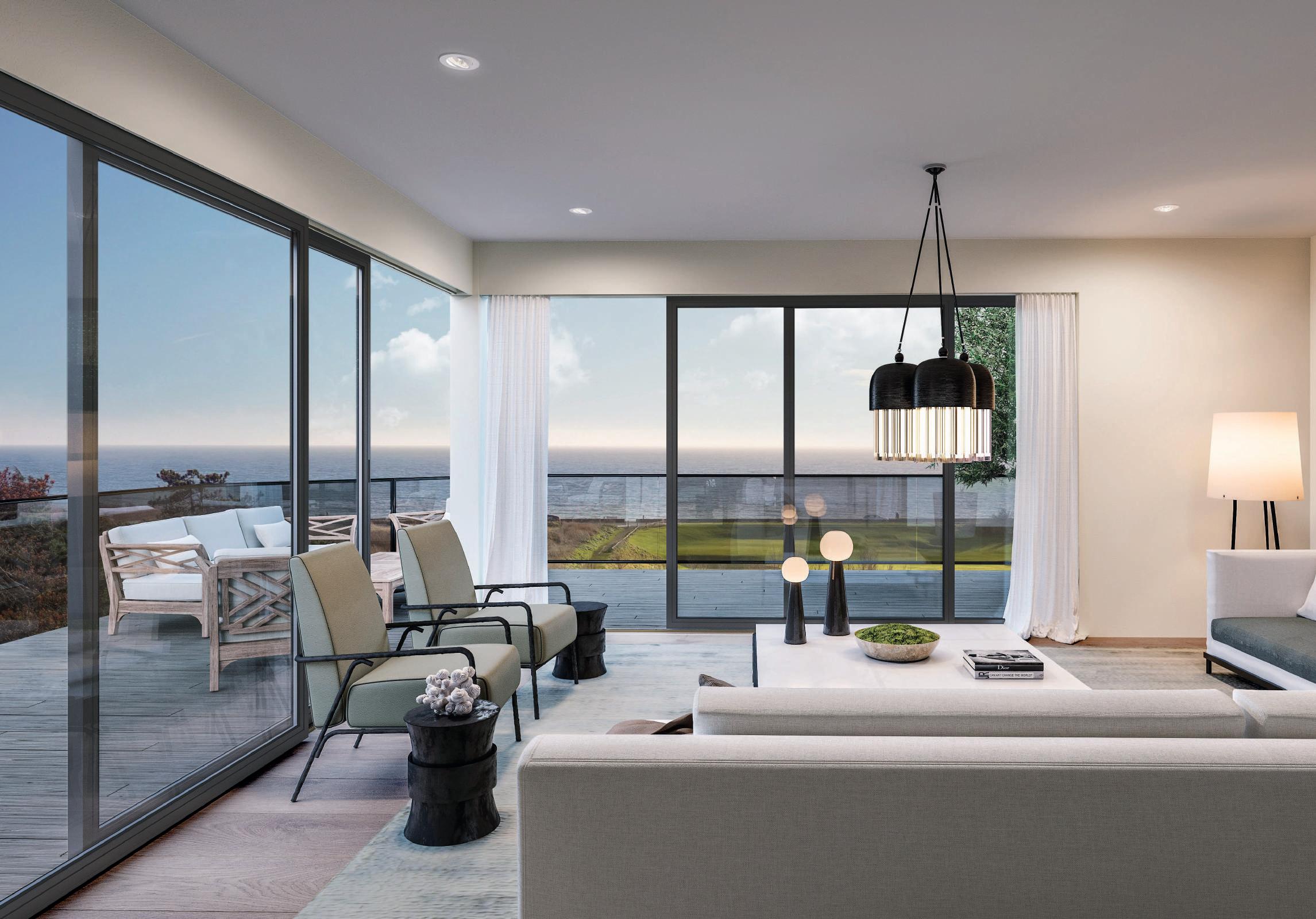
4 minute read
ADJUSTING THEIR SIGHTS
Changes in London are affecting the new build market, there and in rural areas, in ways which are quite different, but which allow more innovative, higher quality builders, to shine.

Small can be beautiful, at least amongst property developers. The national house builders have huge economic power and political influence, but their scale and structure often makes it hard for them to adapt to local conditions or even, as has been much reported of late, to provide a decent quality product. As greater competitiveness grips the market, it is the more innovative, flexible and higher quality builders who are succeeding. They do include some national names, but this is territory on which the small, local players, tend to have the advantage.
Slower London Influence
Important to the upper end of the new build country market for decades, people moving from London are now much less likely to be cash buyers. For example, 60% of Londoners interested in a near sold-out development we are offering in Devon’s South Hams district, have a dependent sale, double the proportion of just a few months ago. This is slowing rates of sale, enabling local buyers with a complete chain below them, to step in. It is also focussing attention on the value of local buyers and what they want.

HELP FOR LANDLORDS (AND HOUSING BENEFIT TENANTS)
Amidst moves to cater for buy-to-let owners eager for savings, some lenders are targeting discrimination, too.
Local Developers Adapt
Another Devon development, shown above, provides a good example. In a lovely village within commuting distance of Exeter and too far from the coast to be of obvious interest to retirees or holiday home buyers, we expect almost all buyers of its 28 houses to come from the surrounding area. To build at all, local developers Westhaven had to demonstrate great sensitivity to the built heritage and community of the village. Now, they are wooing purchasers with a level of personalisation which larger operations would struggle to match. Thus kitchens, bathrooms and floor coverings are only installed when the buyers of each house stipulate what they want and, if they get in early enough, they could rearrange the whole house.
The Westhaven development is a little larger than most rural sites and includes some terraced houses. The ability to include affordable units on sites of this size and much smaller, is likely to become more important over the medium term. If so, this will again be to the advantage of smaller, adaptable firms and should, following Westhaven’s example, allow buyers at more modest prices to enjoy superb levels of personalisation. That said, all players are
Above: Devon from £240,000 guide (Exeter)
Below: Surrey £865,000 guide (Reigate) of course at the mercy of market forces and, in contrast to the inner London market, the main cry from the Jackson-Stops new homes teams across the country at present is “Shortage of stock”.

The developments shown above and left, both involve local architects and developers. The Surrey development shown below is by national builders Countryside which, significantly, has local teams across the country and puts a far greater emphasis on creating a sense of place, and on architectural appeal, than most.

London Developers Switch
A third of the new homes sold in London last year were sold into the corporate (“build to rent”) private rental sector, many schemes having switched to the rental market between construction start and completion*. Even so, within, say, three miles of Trafalgar Square, the oversupply of new homes is set to continue, placing buyers very much in the driving seat.
In suburban London and closer-in home counties areas, the picture is more balanced. There is no oversupply and Help To Buy loans are of greater significance. Almost all developments are aimed squarely at the needs of local owner occupiers rather than overseas investors, and price expectations and fluctuations have been much less volatile. It is also much easier for large new house schemes to adapt to demand because unlike, say, a 40 storey, 400 unit residential tower, not everything has to be built at once. It’s difficult to adjust your sights, if they cannot be moved.
Initiate Flexibility
Finally, if you are interested in a new home but want some variation or change which is not explicitly being offered, don’t hesitate to ask. If you are serious, your question will be taken seriously. Some house builders are more proactively flexible than others, but almost all of those we deal with are keen to please and to continuously learn. Who knows – if it catches on, your request might initiate a wholesale readjustment.
*Source: Molior
It seems that, for every landlord leaving the market due to extra taxation and regulation, at least two more are opting to remain and recoup those losses wherever they can. In response, lenders are now offering more BTL products than at any time since 2007. These include a ten year fixed rate loan with no exit penalty after five years, an 85% loan-tovalue mortgage plus, from the same lender, an increase in their maximum portfolio size from 15 to 20 properties.
Other lenders, meanwhile, have been focussing on private sector tenants who receive housing benefits. Worried about benefit reforms back in 2013, many lenders obliged landlords to refuse to rent to those on benefits, regardless of employment or credit status. Following requests from charities, NatWest lifted this restriction in February, followed by Nationwide and the Co-op Bank in March and April respectively. Zoopla has banned the advertising of “No DSS tenants” properties on its website. NatWest has also extended the maximum term from 12 to 36 months, allowing landlords to offer tenants greater security. The majority of tenants want to buy but struggle to raise a deposit. The good news for them is that 95%, two year fixed mortgage rates have reached an historic low of 3.09%. Combined with stamp duty exemptions, a new cohort of buyers is now in a position to proceed.
For independent advice, contact Private Finance on 0870 600 1650 or jackson-stops@privatefinance.co.uk.




